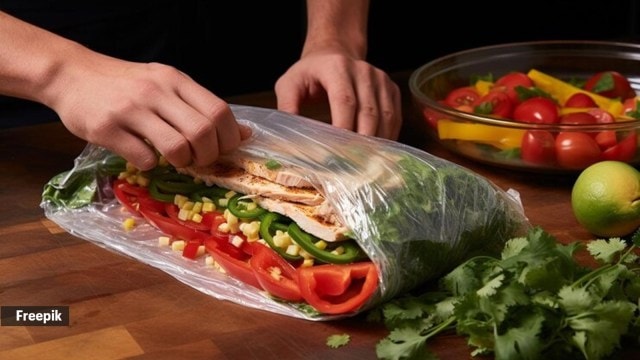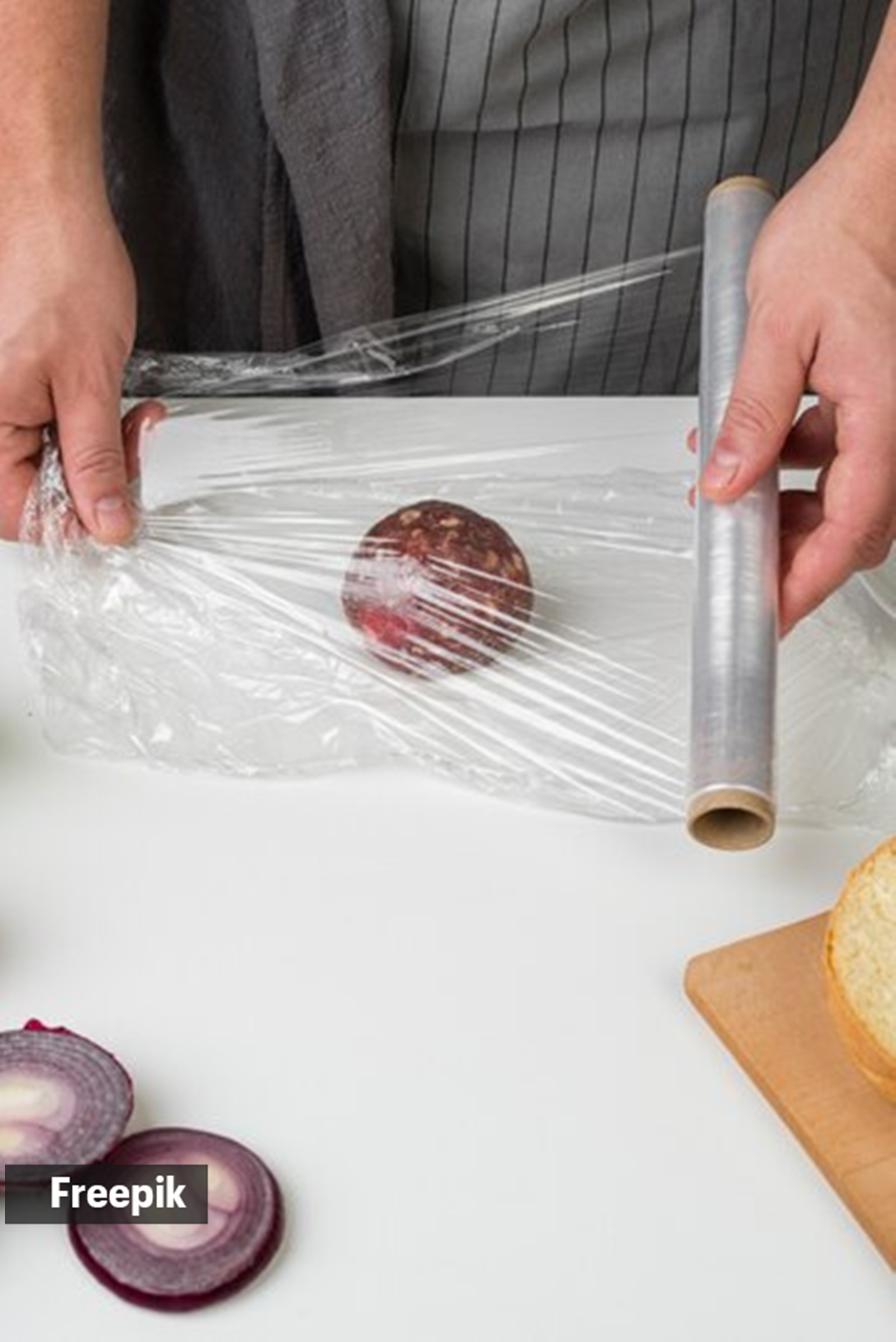📣 For more lifestyle news, click here to join our WhatsApp Channel and also follow us on Instagram
Fresh produce or plastic poison? The shocking truth about cling wrap
Here’s why you need to ditch foods wrapped in cling film, and choose these alternatives instead
 While plastic wrap does create a barrier, it's not completely airtight. (Source: Freepik)
While plastic wrap does create a barrier, it's not completely airtight. (Source: Freepik)Finding fruits, vegetables and meat wrapped tightly in cling film is common in supermarkets today. How many times have you not given a second thought to buying such foods, assuming them to be fresh and safe for consumption?
According to nutritionist Ananya, who posted about this in her Instagram reel, “Cling wraps contain endocrine disruptor that has been linked to breast cancer in women and low sperm counts in men, causing early puberty in girls.”
“Stop using and buying plastic cling wraps to wrap your veggies. Research suggests the potentially toxic plastics in our cling wrap leach into our food,” she warns in her caption.
View this post on Instagram
Why you need to stop purchasing perishable items wrapped in plastic cling film wraps
So, should you avoid cling film wraps altogether and opt only for fresh produce and meat that is not wrapped in plastic?
Kanikka Malhotra, consultant dietician and diabetes educator, agrees, “Unfortunately, plastic cling wrap can have some negative effects. Prolonged contact with plastic can slightly reduce the nutritional value of perishable foods.” This happens mainly due to two reasons, she states:
Oxidation: While plastic wrap does create a barrier, it’s not completely airtight. The limited oxygen exchange can accelerate oxidation, causing certain vitamins (like vitamin C) and antioxidants to break down faster, reducing the overall nutritional value of the food.
Moisture loss: Some plastic wraps, especially those not specifically designed for food, can lead to moisture loss in fruits and vegetables. This affects the texture, making them less crisp and potentially impacting their taste.
 Consultant dietician Kannika Malhotra says, “There’s definitely a reason for concern. Many plastic cling wraps are made of polyvinyl chloride (PVC), which often contains plasticisers like phthalates. (Source: Freepik)
Consultant dietician Kannika Malhotra says, “There’s definitely a reason for concern. Many plastic cling wraps are made of polyvinyl chloride (PVC), which often contains plasticisers like phthalates. (Source: Freepik)
Potential health risks associated with consuming foods that have been wrapped in plastic cling wrap
Malhotra says, “There’s definitely a reason for concern. Many plastic cling wraps are made of polyvinyl chloride (PVC), which often contains plasticisers like phthalates. Studies show that these chemicals can leach into foods, particularly those with high-fat content, like meats or cheeses.”
Exposure to phthalates has been linked to potential health risks, she adds, including endocrine disruption and developmental issues in children. It’s important to choose food-grade cling wrap specifically designed to minimize this migration and look for BPA-free options.
Endocrine disruptors can mimic natural hormones, block hormone action, or disrupt the production and regulation of hormones. According to Malhotra, this interference can lead to a range of potential health problems, including:
*Reproductive issues: Disrupted hormone levels can affect fertility, menstrual cycles, and increase the risk of conditions like endometriosis or PCOS.
*Developmental problems: Exposure to endocrine disruptors during critical developmental periods, like in the womb or during childhood, can lead to learning disabilities, behavioral problems, and growth abnormalities.
*Metabolic disorders: Endocrine disruptors are linked to metabolic issues like obesity, diabetes, and thyroid disorders.
*Increased cancer risk: Certain endocrine disruptors have been associated with increased susceptibility to hormone-sensitive cancers like breast or prostate cancer.
Viable alternatives to plastic cling wrap for packaging perishable items
Malhotra agrees that there are several safer and more sustainable options. Consumers should either choose these or purchase food items that are not wrapped in any plastic:
Beeswax wraps: These reusable wraps are made of fabric coated with beeswax. They provide a good seal and are breathable, helping to preserve freshness.
Reusable silicone covers: These stretchable covers come in various sizes, creating an airtight seal on bowls and containers. They’re easy to clean and very durable.
Glass or stainless-steel containers: These are the most inert and eliminate both plastic concerns and food interaction risks. They are excellent for storing leftovers or packing lunches.
Paper bags: For short-term storage, breathable paper bags are a good choice for items like mushrooms or herbs.
📣 For more lifestyle news, click here to join our WhatsApp Channel and also follow us on Instagram






- 01
- 02
- 03
- 04
- 05





















